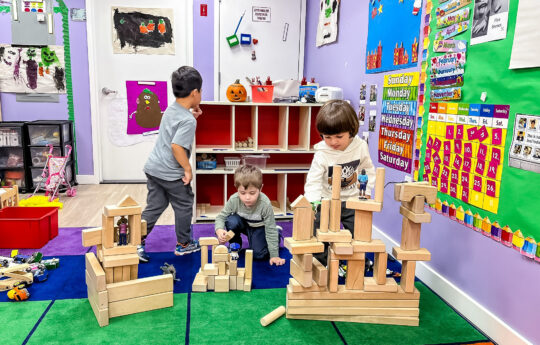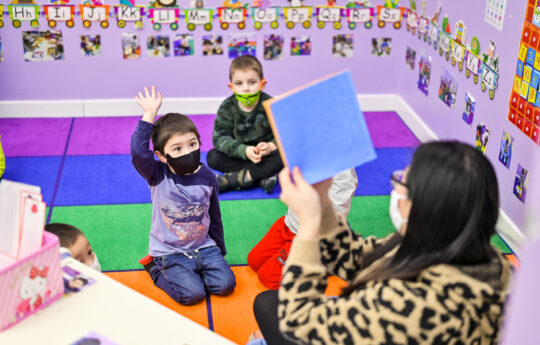
Some parents think that sharing with peers is unnecessary because then the child would have all the resources for a prosperous life. But in this scenario, there is a risk of bringing up a greedy child. On the other hand, if you consistently give everything to someone else, you will ultimately wind up with nothing. Experience has taught us that kids who don’t learn to say “no” in the present suffer from manipulation in the future. So how can you maintain equilibrium keeping the core values and without sacrificing the treasured golden middle?
Greedy Definition for Child
In the context of social-emotional learning, greediness refers to an excessive desire to acquire or possess more than what one needs or deserves, especially with regard to material possessions, food, or attention. This can manifest as a reluctance to share toys, a constant demand for new things, eating more than is necessary, or wanting undivided attention from adults or peers, often at the expense of others’ needs or feelings.
Normal self-interest vs. problematic greed
Normal childhood self-interest is a developmental phase where children prioritize their own needs and desires as they learn about personal boundaries, ownership, and individuality. This behavior is typically seen in moments like wanting to play with a particular toy or choosing a favorite snack. It becomes a way for children to express independence and understand their environment.
Problematic greediness, on the other hand, extends beyond this developmental self-interest and is characterized by an excessive and persistent desire for more, regardless of need. It often leads to behaviors that are detrimental to social relationships and emotional well-being, such as refusing to share with others, throwing tantrums over not getting what they want, and showing little regard for the feelings or needs of others. This level of greediness can hinder a child’s ability to form healthy social connections and empathize with others.
Why early intervention matters
Since repeated greedy child behaviors can have a detrimental effect on a child’s social connections and emotional development, it is imperative to address greediness in children at an early age.
- Prevents Persistent Selfish Behaviors: Early intervention helps stop greediness from becoming a deep-seated trait.
- Promotes Positive Social Interactions: Children learn the value of cooperation and sharing skills, essential for healthy relationships.
- Supports Emotional Development: Addressing greediness early aids in developing empathy and emotional intelligence.
- Avoids Future Issues: Early management can prevent materialism, entitlement, and social conflicts later in life.
In the end, teaching kids to share and take into account the feelings of others creates the groundwork for future healthy relationships, emotional intelligence, and a thoughtful, balanced approach to their interactions and desires.

Why Does the Child Become Greedy?
Why is my child greedy? There are multiple answers to this question such as:
- First of all, ask yourself “what is the reason that my baby is greedy”. Often it is that the child lacks parental love, affection, and attention.
- Sometimes greed emerges as a logical outcome of the kid’s single-parent home life and his need for connection with his absent parent, when buying gifts they view it as a highly valued action.
- When the child is extremely shy and their only friends are toys, it is natural that he or she doesn’t want to share them.
- An unhealthy or excessive sense of ownership is possible. A baby is not innately greedy; rather, they progressively become acclimated to it in the family and can even turn into a selfish and ungrateful child.
Many factors, such as a need for attention, feelings of sibling rivalry, shyness, or becoming used to excessive ownership, can cause a greedy child behavior.
Causes of greediness in children
Greediness in children can stem from various sources, categorized into psychological aspects, environmental factors, and developmental stages.
Preventing overstimulation in toddlers is crucial to promoting their healthy emotional and social development because, for instance, it can cause them to become more preoccupied with their immediate wants rather than sharing or waiting.
Psychological aspects
- Emotional Needs: Children might display greedy behavior as a way to compensate for unmet emotional needs, such as seeking attention or affection when feeling neglected or lonely.
- Insecurity: A sense of insecurity or inadequacy can drive children to accumulate more things or seek more attention, hoping to feel more valued or secure.
- Seeking Control: For some children, greediness may be a way to exert control over their surroundings or assert independence, especially if they feel powerless in other areas of their lives.
Environmental factors
- Influence of Peers: Children often mimic the behavior of their peers. If they are surrounded by others who exhibit greedy behavior, they may imitate this trait.
- Family Dynamics: The family environment plays a significant role; children from families where materialism is emphasized or where sharing and generosity are not practiced may develop greedy tendencies.
- Societal Messages: Media and societal messages that glorify possession and acquisition can contribute to developing greediness in children, making them believe that their worth is tied to what they have.
How to Stop Your Child From Being Greedy
The thoughts “why is my child so greedy with food,” “my child is not sharing with their peers,” and “how to stop a child being greedy with food” may cross your mind. The solution to this problem lies with the parents themselves, who should always set a positive example for their children.
This is the most powerful tool in the fight against picky eaters. Focus on what you can offer rather than what you hope to obtain. Give people something nice all year long instead of on occasions. Don’t forget to show gratitude to others, and teach children to follow suit.
Strategies to Deal with a Greedy Child
To address greediness in children, consider these parent scripts. While greed is frequently a natural developmental stage, it can also teach us important lessons about generosity, kindness, and patience if we can learn how to control it.
| Parental Script | The Process |
| Encouraging Empathy and Understanding | Help children understand the feelings of others by discussing emotions and situations that make empathy building. Storytelling and role-playing can be effective in illustrating the impact of their actions on others. |
| Teaching the Value of Sharing and Cooperation | Use games and activities that require teamwork and sharing. This could include group art projects, cooperative board games, or activities where resources must be shared to achieve a common goal. Highlight the benefits of working together and sharing during these activities. |
| Setting Clear Boundaries and Consistent Consequences | Establish clear rules about sharing and generosity, and be consistent in enforcing them. When a child acts greedily, calmly explain why the behavior is unacceptable and get the agreed-upon consequences. |
By using these techniques, kids can learn the value of empathy, cooperation, and sharing, which will help them grow into well-rounded people who recognize the necessity of taking into account the needs and feelings of others.
Learn more parental scripts reading through Little Scholars Hub to educate your children.

How to stop a child being greedy with food
Exactly, how to stop a child being greedy with food? To stop a child from being greedy with food, it’s important to establish healthy eating habits and positive mealtime behavior.
Healthy mealtime tips
- Model Positive Behavior: Children often imitate the behavior of adults. Demonstrate healthy eating habits and share food during meals to set a positive example.
- Create a Routine: Establish regular meal and snack times to help children understand when to expect food, reducing anxiety or greediness related to eating.
- Teach Portion Control: Educate children on appropriate portion sizes and the importance of leaving enough for others, helping them understand the concept of sharing and moderation.
- Educate on Nutrition: Teach children about the benefits of different foods and how they contribute to their health, making healthy eating a more interesting and engaging concept, reducing food anxiety.
Addressing underlying issues
- Identify Triggers: Determine if specific situations or emotions prompt greedy eating behavior and address these triggers directly.
- Ensure Emotional Support: Children may turn to food for comfort. Ensuring they feel supported emotionally can reduce food-related greediness.
- Foster a Non-Competitive Eating Environment: Ensure that meal times are not seen as a competition for food, which can reduce the urge to act greedily.
- Seek Professional Advice: If food-related greediness is severe or persistent, consulting a pediatrician or a child psychologist can provide tailored strategies to address the issue.
How to Prevent your Child from Becoming Greedy
Keep in mind that social motivations start to grow along with actual compassion after three years old. If you start teaching your child good manners before this moment, a child whose property rights have not been recognized will not recognize and respect the other person’s property rights.
Age 1: Early Development and Greed
There can be no discussion about greed when the infant is just one year old. It is unnecessary to exert pressure on the child’s moral ideals at this early stage of child development.
Age 2: Ownership and Personal Boundaries
At the age of two, a child realizes that there are things that belong to them and there are things that belong to others. The infant has to be taught that their possessions belong to them alone and that no one is permitted to remove them without their consent.
Age 3: Learning to Say No and Understanding Greed
At the age of three, a child must learn to say a resounding “no”. If not, they will be misled, and their life will become a nightmare. Parents must teach their children that there is a difference between refusal and greed. Denial is the protection of one’s possessions, and greed is a bad and harmful trait.
Age 4: Socialization and the Role of Sharing
At the age of four, a child enters a new stage of socialization. Communication will be in the foreground, and things already play a secondary role, they only help to start a conversation and find friends. At this age, youngsters are aware that sharing chocolates, borrowing a typewriter or toy, or lending a pen would make it simpler for them to communicate with friends. And your role as the parent is to encourage it.

Conclusion
Navigating the fine line between fostering generosity and avoiding greediness in children is a nuanced journey. It’s essential to strike a balance where children learn to value sharing and empathy without feeling deprived or pressured. Encouraging open communication, setting an example of generosity, and creating a supportive environment are key to developing well-rounded individuals who respect both their own and others’ needs and possessions.
At Little Scholars Daycare, we understand the importance of addressing early childhood behaviors, including greediness. We invite you to explore our Preschool Program and see how we can help your child grow and thrive in a community that values kindness and generosity. Join us today and be a part of a caring and supportive family at Little Scholars Daycare.
Join Us at Little Scholars Daycare
At Little Scholars Daycare, we understand the importance of addressing early childhood behaviors, including greediness. Our dedicated team provides a nurturing environment that fosters positive social interactions, empathy, and sharing among children. We invite you to explore our programs and see how we can help your child grow and thrive in a community that values kindness and generosity. Join us today and be a part of a caring and supportive family at Little Scholars Daycare.
FAQ
What does “greedy” mean for kids?
A greedy definition for kids refers to a strong, frequently self-centered desire, without taking into account others, for more of something, such as toys, candy, or attention, than one needs or deserves. Greedy kids may display a lack of appreciation or empathy for other people by hoarding items, refusing to share, or persistently wanting more of a certain item.
Why do kids become greedy?
A learned behavior, greediness is frequently exacerbated by media consumption that promotes materialism and family dynamics. Unfulfilled needs, poor communication skills, or even a basic inclination to desire what others have can also be the cause.
How to handle refusal to share?
Avoid pressuring a child who refuses to share because it may backfire and make them feel insecure. Saying “I know it’s hard to share” will instead validate their feelings. Practice with a trusted adult first, share with them and others, and set an example.
How to stop a child being greedy with food?
Establish a schedule of consistent, healthful meals and snacks to prevent compulsive eating, and serve small portions to encourage moderation. Model healthy eating practices by dining with kids, teach them about portion control, and promote mindful eating.
How to prevent greed by age?
Setting limits on excessive consumption will help you avoid becoming enslaved to more accomplishments or possessions, practicing generosity by sharing your time and resources, and developing empathy and gratitude by recognizing the needs of others and appreciating what you have will help prevent greed at any age




